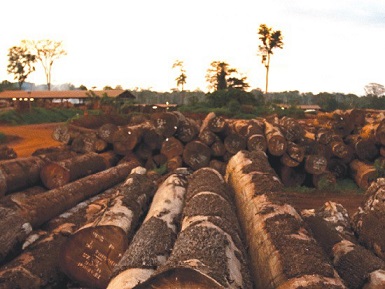
info.afrindex.com
China-Africa Trade Information Service

info.afrindex.com
China-Africa Trade Information Service

Image: Tralac
Ghana is hoping to revive its dwindling timber trade with the European Union through a Voluntary Partnership Agreement programme.Decline in the volume of premium species like Mahogany, Afromosia and Odum, as well as harvest restrictions and global financial meltdown account for a drop in timber trade between the two partners.
The volume of timber trade between Ghana and its European partners dropped from 60 to 12 per cent with an annual value of less than 170 million, since 2009.
Ghana and the EU signed the Voluntary Partnership Agreement which requires all timber export products from Ghana are legally produced. It also ensures promotion and enforcement of forest laws and governance.
After meeting requirements of the Forest Law Enforcement, Governance and Trade licensing scheme (LEGT), Ghana can now export timber products to Europe.
"We would be trading or selling our timber under these licenses to the EU. If one is able to issue or trade under timber legalities licenses, what that one says is that every consignment of timber that you are sending out has been kind of adjudged by the systems to be legal devoid of every illegal source or illegal material," says Director at the Timber Validation Department of the Forestry Commission, Chris Beeko.
The timber sector is Ghana's fourth largest export sector, after the gold, oil and cocoa industries. Historically, the sector's leading export market was the EU. However, after the bloc tightened up regulations on the timber trade in the early 2000s, reflecting concerns about illegal logging in originating countries, exports from Ghana, which became subject to due diligence checks, steadily reduced. In 2018 sales to the EU accounted for 12% of Ghana's total timber export earnings of €187.9m (US$205m), down by some 60% from the €183.4m of gross revenue in 2002. Trade has been redirected to the less regulated, but large Asian market (mostly India and China), which is now the source of three-quarters of timber export revenue.
The benefits of larger trade with the EU are tariff- and quota-free access, which Ghana enjoys via a free trade agreement (the Economic Partnership Agreement) with the bloc. Earnings will improve, as licensed timber will probably attract a premium from buyers. Further opportunities could be opened up in other highly regulated markets, such as Australia and the US. A possible limitation is the supply-side response, which could be restrained if illegal logging escalates or if government policies attempt to curb the loss of forest cover.